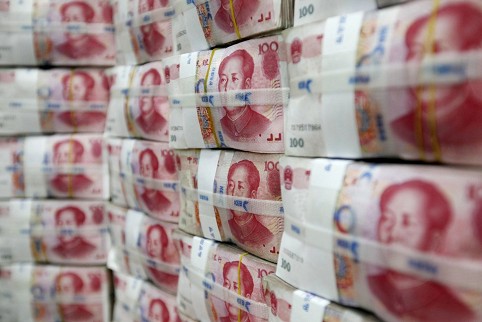And now for this evening’s stunner, via Dow Jones.
“There won’t be hyperinflation in China this year, the state-run China Securities Journal reported Tuesday, citing Yao Jingyuan, the chief economist of the National Bureau of Statistics. The abundant stocks of grains and main agricultural products in China are key factors in stabilizing consumer prices, the newspaper quoted Yao as saying.
China’s consumer price index rose 4.9% in January from a year earlier, picking up from December’s 4.6%.”
So putting aside what official denial means about the validity of a story, not to mention this utterly bizzare and completely out of left field statement, China’s best and only reason why it won’t have hyperinflation is that it has “abundant stocks of grains and agricultural products.”… We can, at best, hope that this has to be some early version of an April Fool’s joke, or else things are truly far worse than anyone expected.
Also, just where does China put the threshold cut off on “hyper” – 10%? 20%? 50%? Is it at least safe to say that China may well experience mega, turbo, or nitrous inflation (and we generously put all three terms to the left of “hyper” on the X-axis)?
In the meantime, Russia, which will soon come out with comparable warnings, unexpectedly hiked interest rates by 0.25% to 8.00%:
The Russian Central Bank unexpectedly raised its key interest rate by 0.25 percent to 8 percent for the first time since the economic crisis over two years ago.
The Bank of Russia said in a statement that the rate hike, effective from Monday, was needed due to the high inflationary pressure and the expected rise of capital inflow into Russia as the world oil prices surge on the unrest in the Middle East.
“There are grounds for capital inflows into Russia due to higher oil prices,” the central bank said in a statement accompanying the decision.
By tightening its monetary policy, Russia is sending a strong signal that it views rising prices as a greater threat than slow economic growth.
Since the start of 2011, according to the Rosstat data, customer inflation in Russia reached 9.7 percent in a yearly term, mostly due to rising food prices. Earlier, in December 2010, central bank Chairman Sergey Ignatiev said monetary policy makers next year will focus on keeping inflation between 6 percent and 7 percent.
In addition to raising all of its rates by 0.25 percentage points, the central bank also tightened reserve requirements for liabilities to non-residents were raised by 100 basis points to 4.5 percent, and for other liabilities by 50 basis points to 3.5 percent. This should discourage inflows of speculative capital and a sign of the bank’s concern that a stronger ruble would hurt growth.
On Friday, Russia’s currency climbed 0.7 percent, hitting a 10-month high against the U.S. dollar.
Russia’s current bout of inflation was sparked by a summer drought that destroyed over one-third of its grain harvest last year and sent food prices soaring.
Although Russia has already scrapped food import duties and banned exports of grain, prices have continued to rise, throwing into doubt the central bank’s target of 6 percent to 7 percent inflation for 2011.
“It’s quite encouraging to see that they’re willing to adopt a quite unconventional … response,” David Oxley, an emerging markets economist with Capital Economics, said to Reuters.
Russia had responded with a deposit rate hike already from December 27, including increasing the one-week deposit rate to 3 percent from 2.75 percent, and reserve requirements for non-resident credit institutions to 3.5 percent from 2.5 percent in January, but this month’s moves stepped up the campaign.
“The most confusing thing about the central bank’s decision is that it followed the release of predominantly weak January macroeconomic indicators,” Alexander Morozov, chief economist at HSBC said to The Wall Street Journal.
Get used to many more such “confusing” decisions, as the Fed’s policies force the developing world to stall their economies with preemptive tightening. And there are those who wonder why the currencies of these countries don’t surge as a result, pushing the dollar lower.
h/t London Dude Trader and themos mitsos
Submitted by Tyler Durden on 02/28/2011 23:44 -0500
Source: ZeroHedge
